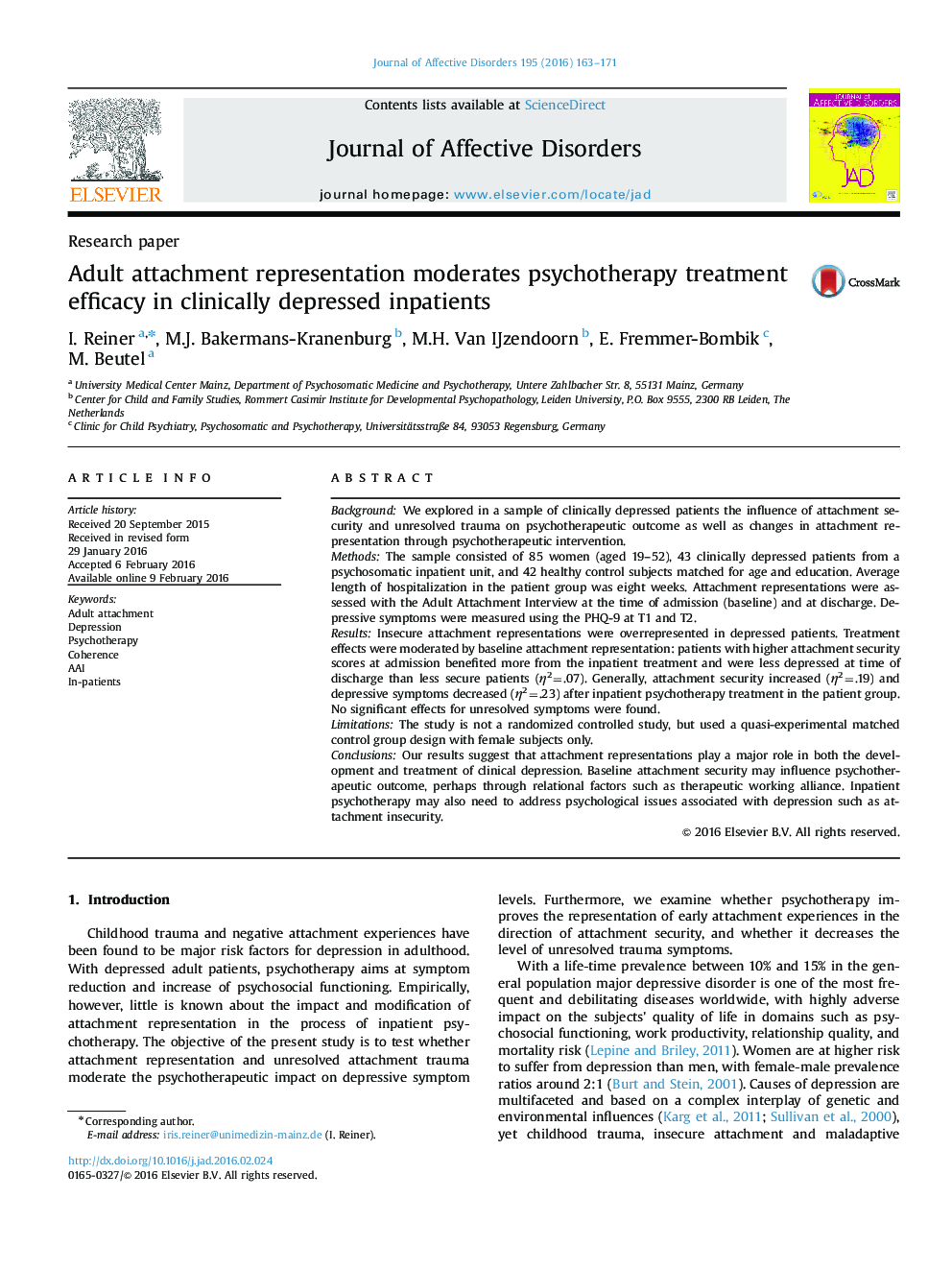| Article ID | Journal | Published Year | Pages | File Type |
|---|---|---|---|---|
| 6230399 | Journal of Affective Disorders | 2016 | 9 Pages |
â¢We investigated changes in attachment representation in depressed patients.â¢Patients with more attachment security benefited more from the inpatient treatment.â¢Inpatient psychotherapy promotes attachment security and not only symptom reduction.
BackgroundWe explored in a sample of clinically depressed patients the influence of attachment security and unresolved trauma on psychotherapeutic outcome as well as changes in attachment representation through psychotherapeutic intervention.MethodsThe sample consisted of 85 women (aged 19-52), 43 clinically depressed patients from a psychosomatic inpatient unit, and 42 healthy control subjects matched for age and education. Average length of hospitalization in the patient group was eight weeks. Attachment representations were assessed with the Adult Attachment Interview at the time of admission (baseline) and at discharge. Depressive symptoms were measured using the PHQ-9 at T1 and T2.ResultsInsecure attachment representations were overrepresented in depressed patients. Treatment effects were moderated by baseline attachment representation: patients with higher attachment security scores at admission benefited more from the inpatient treatment and were less depressed at time of discharge than less secure patients (η2=.07). Generally, attachment security increased (η2=.19) and depressive symptoms decreased (η2=.23) after inpatient psychotherapy treatment in the patient group. No significant effects for unresolved symptoms were found.LimitationsThe study is not a randomized controlled study, but used a quasi-experimental matched control group design with female subjects only.ConclusionsOur results suggest that attachment representations play a major role in both the development and treatment of clinical depression. Baseline attachment security may influence psychotherapeutic outcome, perhaps through relational factors such as therapeutic working alliance. Inpatient psychotherapy may also need to address psychological issues associated with depression such as attachment insecurity.
